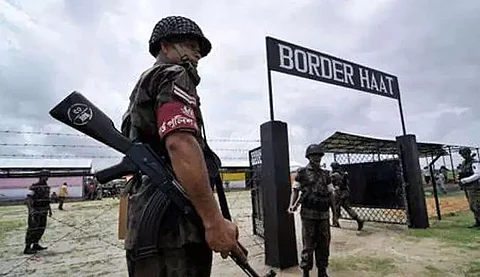
- Home
- Live Blog
- Breaking News
- Top Headlines
- Cities
- NE News
- Sentinel Media
- Sports
- Education
- Jobs

STAFF REPORTER
GUWAHATI: The repatriation of foreigners declared as Bangladeshis by FTs (Foreigners Tribunals) has proved to be an arduous task for the State government. It has assumed the status of a never-ending exercise.
The major hiccups in the repatriation of FT-declared foreigners are ascertaining the addresses of the people to be repatriated. And that's really an arduous exercise as it doesn't come to fruition in most of the cases.
Before the repatriation treaty between India and Bangladesh came into effect, the system prevalent for the deportation of FT-declared Bangladeshis was direct pushing back of such persons into Bangladesh.
According to official sources, so far 29,959 Bangladeshis were deported, and most of them were pushed back to the neighbouring country.
However, after the repatriation agreement between the two nations, the process of repatriation has become almost impossible in most of the cases.
Till July 2020 the Border Police referred 4,34,654 cases against people of suspected nationalities to the FTs in the State. The FTs disposed of 2,20,833 of the 4,34,654 cases and declared 1,34,810 people as foreigners. The crux of the problem lies in the fact that the FT judgments of around 80,000 declared Bangladeshis were pronounced ex parte. The police have not been able to locate the whereabouts of most of these declared Bagladeshis.
Believe it or not, official records laid in the State Assembly say that so far only two Afganistanis and five Bangladeshis have been repatriated. Besides these, the addresses of 105 other declared Bangladeshis are being ascertained.
The six detention camps in Assam still have around 3,000 declared foreigners. According to the repatriation rules, so long the addresses of the FT-declared Bangladeshis are not ascertained their repatriation isn't possible. And this is a very lengthy process that often meets with failures. After an FT declares a person as foreigner, the State government sends the person's country and address to the Ministry of Home Affairs (MHA), Government of India which sends that to the Ministry of External Affairs of the nation concerned through the Office of the High Commissioner. When the nation concerned verifies the address sent, the repatriation of the declared foreigner is possible. However, in most of the cases such people's addresses can't be found on the ground.
According to Border Police sources, major challenges in repatriation of foreigners are (1) abysmal delay in ascertaining the addresses of declared foreigners by the Bangladesh government and (2) keeping thousands of declared foreigners, who don't disclose their addresses in Bangladesh, in detention camps.
On the other hand, there is a standing guideline from the Supreme Court of India that no declared foreigner should be made to languish in detention camps for more than three years after which he or she should be released under certain conditions. The release of a section of such foreigners makes it difficult to relocate them.
Also Read: BGB, BSF discuss ways to boost information sharing, reduce crimes
Also Watch: Watch: Spine-chilling accident caught on camera, one woman dead